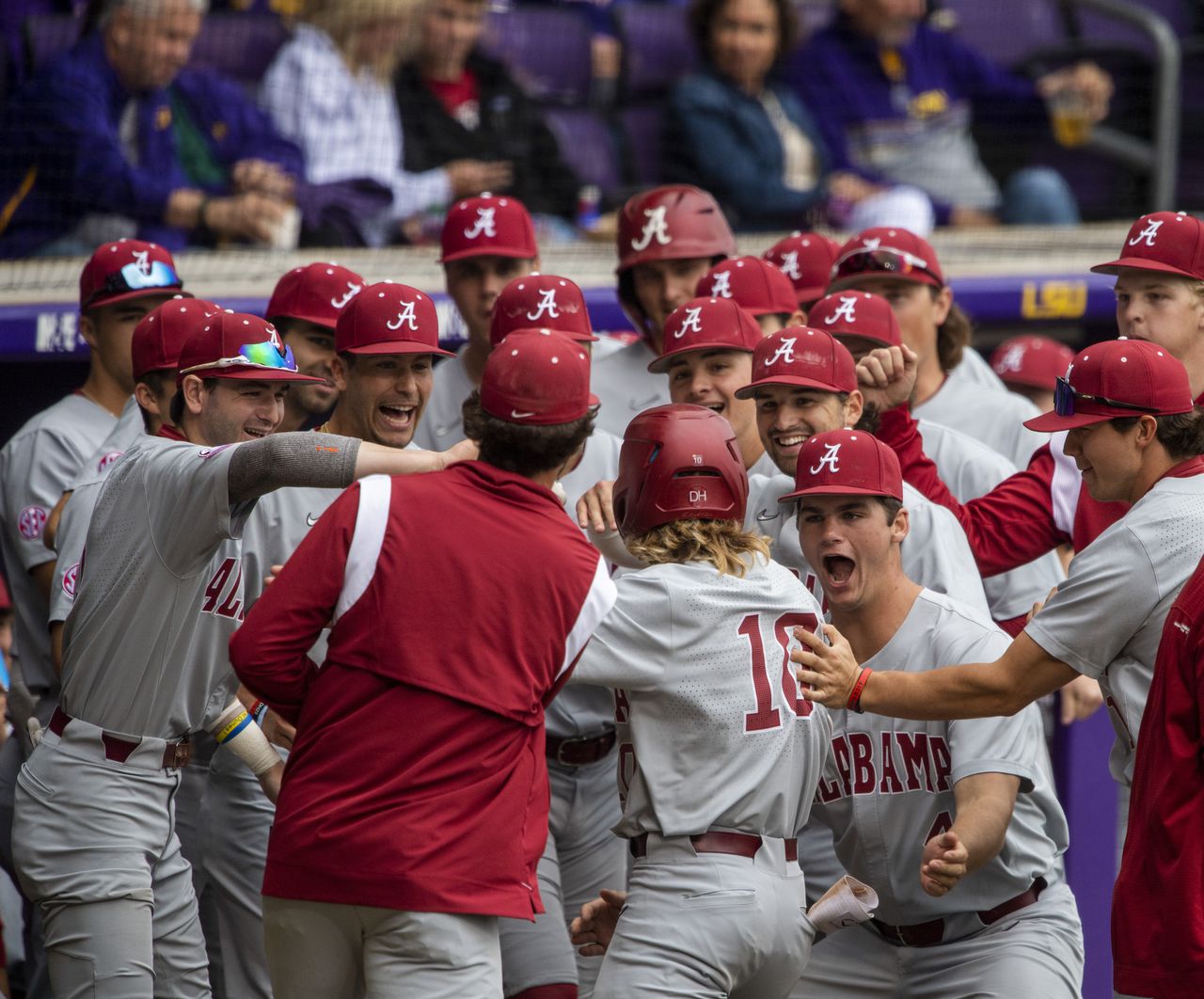Alabama baseball betting scandal: What is ‘suspicious wagering activity’? What gets flagged?
Alabama fired baseball coach Brad Bohannon on Thursday after a report of suspicious bets involving his team.
Multiple sources confirmed to ESPN’s David Purdum that “sportsbook surveillance video indicated” that whoever made the flagged bet in Ohio’s Great American Ballpark was in contact with Bohannon.
According to ESPN, Las-Vegas based U.S. Integrity warned sportsbooks of “suspicious wagering activity” involving Friday night’s Alabama-LSU game.
U.S. Integrity, which monitors gambling data to detect abnormalities and misuse of insider information, sent a warning to all of its clients after Friday’s game.
Here is full coverage of the scandal
Alabama scored five runs in the ninth inning of an 8-6 loss to LSU, which was ranked No. 1 in the major college baseball polls while Alabama was unranked.
So how does “suspicious wagering activity” get red flagged?
It’s not necessarily the size of the bet that sets off the alarms, an industry insider told AL.com.
As it turns out, it is the abnormality of the bet.
- Was it a dormant account that was suddenly funded just to make this one wager?
- Is it someone who deviates from their normal pattern or someone who hasn’t been betting in a while who deposits a lot more money than he usually does to bet one singular event?
For example, if an individual who normally bets $100 a game suddenly bets $10,000 a game, it isn’t the size of the bet as much as it is the sudden change is betting pattern.
In addition, it is also important to point out that if you are capable of placing a large wager – say $50,000 or $100,000 – then the sportsbook or casino also knows you.
In other words, typically speaking, sportsbooks and casinos won’t allow you – as an unknown customer – to place a wager of that magnitude. There are, however, exceptions, like the Super Bowl.
What’s a large bet?
It really depends on the sport you are betting. It is not uncommon for sportsbooks to take six-figure bets on the NFL and major college football.
However, when it comes to college baseball, a bet of $5,000 would be considered high.
FanDuel, it has been reported, didn’t take a single bet on the Alabama-LSU game in question, while other sportsbooks also reported minimal betting on the game.
In addition, roughly 75 percent of all college baseball action is taken during the College World Series. There just isn’t much money being put on regular-season college baseball games and certainly with no regularity.
BetMGM told “Forbes Betting” there was no runline – as in spread on the game – or an over/under on the total runs scored offered for the game.
BetMGM said it couldn’t provide the amount of the “large” moneyline bet due to the “active investigation” into the game.
How’s a bet get flagged?
There are two different ways in which suspicious activity gets flagged.
First, the system identifies an abnormality either with an odds movement or actual betting data coming through the system. Even social media post can aid in the discovery.
When the system flags a bet, the sportsbook is contacted. Other books are notified to see if they have seen similar activity. Which is why at least four states prevented any more bets on Tide baseball, including New Jersey and Pennsylvania.
An aggregated report is then completed and sent to the appropriate investigative agency.
In other cases, operators notice the suspicious activity.
This appears to be the way the Alabama bet was flagged based on reports that “sportsbook surveillance video indicated” that whoever made the bet was in contact with Bohannon.
In this scenario, an alert is sent, and the information is set to all other operators. Once all operators have done their due diligence, those results are aggregated and sent to the investigative agency.
What’s future of Alabama baseball betting?
Each situation is different.
However, according to an industry insider, with the college baseball regular season winding down, there won’t be a rush to re-instate Alabama baseball this season.
Once the investigation is concluded, the facts, including whether Alabama and SEC have an integrity partner – which they do – will all be presented for a ruling.
Essentially, there is plenty time before next season to make a determination without impacting any games. Once the last few weeks of this season are managed, there will be months to resolve the issue.
A bad sign for betting on college sports?
Not necessarily.
If this case has shown us anything, it is that the plans, policies and procedures in place work.
Most states have integrity mandates, including Alabama. Basically, they state operators contract, communicate and report to an independent integrity monitor.
The insider said, “it shows the system works.”
Mark Heim is a sports reporter for The Alabama Media Group. Follow him on Twitter @Mark_Heim.
